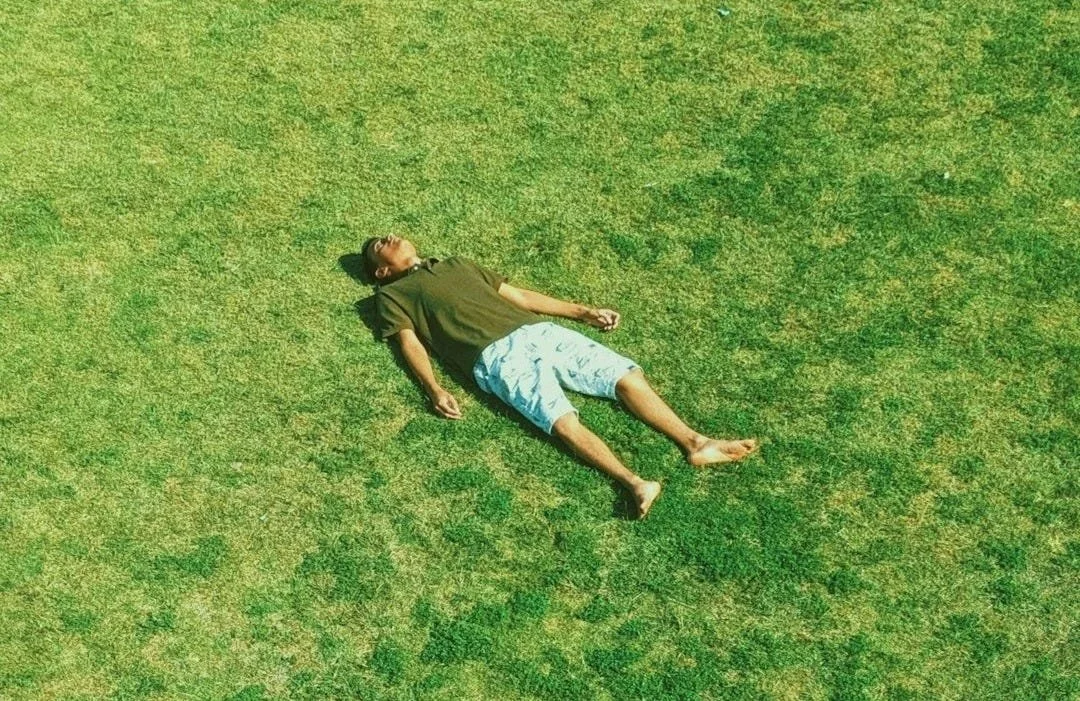corpse pose
what if wellness culture is just a pretty way to fantasize about checking out?
Jul 13, 2025
wellness culture says it's about feeling alive, but have you noticed how much of it looks like practice for being dead? from silent retreats to lying motionless on a studio floor while someone named sage rings a bowl over your face, the line between self-care and softcore nihilism is getting blurry. let’s talk about why your yoga class ends with a nap... and why you secretly love it.
💸 the stillness we pay for
it always ends the same way: lights low, breath slowed, body sprawled. instructors lower their voices, students tuck cylindrical cushions beneath their knees like tiny funerary pillows, and everyone lies down and pretends for five blessed minutes not to exist.
they call it savasana, or “corpse pose.” it’s the final posture in nearly every yoga practice. after the heat, the sweat, the slow contortions and collapsed egos, this is the reward: stillness. silence. nothing to achieve, nothing to prove. just... death.
but a peaceful one. controlled. cushioned. you set a timer for it. you climb into it with intention, then rise from it like nothing happened.
what is it, really, that we’re rehearsing here?
💀 the death drive dressed in lululemon
freud might say we’re indulging our death drive, that quiet compulsion to return to an inanimate state, to slip into non-being and call it peace. he called it thanatos, the counterforce to our messy, horny, life-loving drive (eros). and while we tend to treat it like the shadowy undercurrent of self-destruction, modern wellness culture may have just rebranded it into something marketable.
because what is the “self” we’re constantly trying to optimize if not the thing we’re trying to escape?
“cleanse.” “detox.” “reset.” we don’t say, “i want to disappear.” we say, “i’m doing whole30.”
and somewhere under the sound bath and adaptogens is a quiet, velvety voice whispering: you could let go. just for a moment. you don’t have to be anyone.
wellness becomes the socially acceptable fantasy of obliteration. death, curated.
mindfulness or micro-death?
then there’s mindfulness. the spiritual protein shake of our time. sold as presence, but practiced as detachment. observe the thought, release it. feel the pain, but do not become it. you are not your anger, your desire, your body, your ego. you are watching those things. like a ghost. like you’ve already left.
we call this healing. and maybe it is. but there’s something eerie about the way our most popular tools for peace involve disassociation with better branding.
even the apps, those soft blue gradients and whisper-voiced narrators, promise not so much enlightenment as anesthesia. it’s not waking up. it’s not getting better. it’s… quiet. it's fading into a pleasant, ad-free fog.
you don’t face your anxiety. you get gently guided around it, like a well-styled obstacle in a designer retreat center.
🏃♀️ a beautiful exit
the modern wellness ritual is less about longevity than it is about elegant surrender. we crave control over our endings. we don’t want to die, but we want relief. relief from urgency. from noise. from identity. from ourselves.
and so we flirt with oblivion in palatable ways:
float tanks, where your senses are suspended in simulated womb-space.
breathwork sessions, where you hyperventilate your way into transcendence.
ice baths, where your brain short-circuits just long enough to feel holy.
it’s not suicidal. it’s chic. spiritual. wellness-coded.
we don’t want to die. we just want the benefits of death. quiet, release, erasure, without the stigma. we want to practice letting go without actually having to lose anything.
🙏 namaste and rise
eventually, you come back. the yoga teacher rings a bell or plays some deeply unethical chime that definitely cost $400 on etsy. you wiggle your fingers. roll to one side. come to a seated position. hands to heart.
namaste.
you rejoin the world. you pick up your phone. you text your ex or doomscroll or venmo someone for overpriced matcha.
but something in you shifted. you got to not be yourself for a moment. you lay down like a body being mourned and got up like a brand new being, reborn in athleta and lavender oil.
and you’ll do it again. because corpse pose isn’t just how we end a practice. it’s how we cope with being alive in a world that never shuts up.
